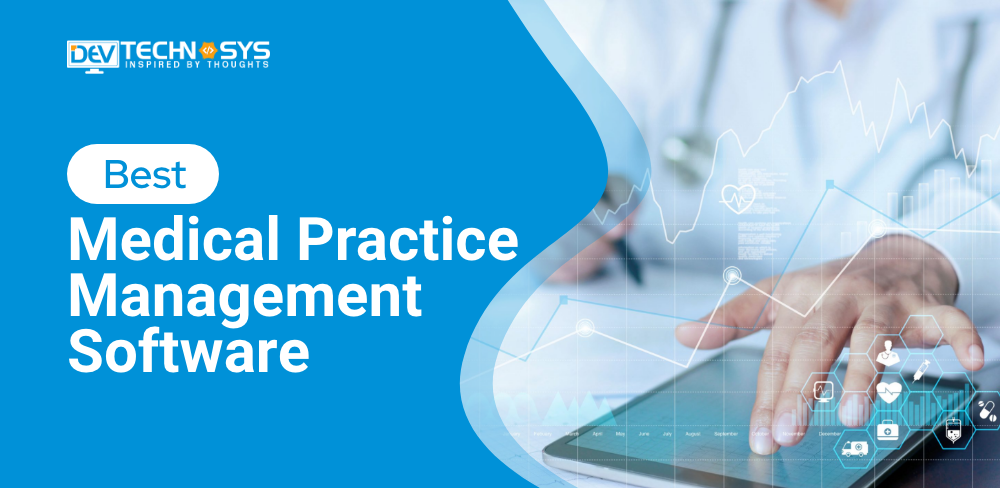Within the current rapidly evolving healthcare landscape, the efficiency and efficiency of medical practices are more critical than ever. As consumer expectations rise and compliance requirements grow more complex, healthcare providers are seeking innovative solutions to streamline their operations. One notable solution is practice management software, which has become an indispensable tool for medical practices looking to improve their operations and enhance patient care.
Practice management software is built to handle multiple administrative tasks, enabling healthcare providers to focus greater on patient interactions and less on paperwork. By automating scheduling, billing, and patient record management, this software diminishes the burden on staff, lowers errors, and ultimately leads to a more efficient operation. As technology continues to evolve, understanding how practice management software can revolutionize healthcare delivery is crucial for providers looking to thrive in a challenging landscape.
Key Features of Practice Management Software
A key key features of practice management software is scheduling functionality. medicloudmed.ch allows healthcare providers to effectively manage appointment bookings for patients. With easy-to-use interfaces, staff can easily view the calendar, schedule new appointments, modify existing ones, and even send automated alerts to patients. This helps in reducing no-show rates and ensures that the daily operations of the practice run seamlessly.
A further essential feature is financial management and coding capabilities. Practice management software streamlines the financial processes by integrating billing systems that create invoices based on patient visits and procedures. Such integration not only decreases human error but also improves the correctness of coding for insurance claims. By facilitating quicker billing cycles, healthcare providers can improve their cash flow while ensuring that patients receive prompt and correct statements.
Furthermore, robust reporting and analytics tools are integral components of practice management software. These features enable healthcare organizations to monitor various metrics such as patient demographics, appointment trends, and financial performance. By examining this data, practices can find areas for improvement, boost patient care, and make strategic decisions that drive the growth and efficiency of the healthcare facility.
Advantages of Practice Management Software in Health Services
One of the main benefits of practice management software is its ability to enhance administrative processes. By streamlining tasks such as appointment scheduling, invoicing, and claims management, medical practices can reduce the time spent on routine operations. This streamlining not only improves efficiency but also reduces the likelihood of human errors, leading to enhanced accuracy in patient records and billing procedures.
Another significant benefit is the enhancement in the patient experience. This software allows for more effective communication between healthcare providers and clients, enabling features like booking appointments online, automated reminders, and safe messaging. These features empower clients to manage of their care, leading to higher satisfaction levels and better engagement in their own treatment plans.
Furthermore, this software provides important data analytics and reporting features that can help medical organizations make better decisions. By analyzing data trends related to the number of patients, the financial health, and resource utilization, practices can pinpoint areas for growth and optimize their operations. This data-driven approach not only supports planning but also enhances the overall standard of care provided to clients.
Selecting the Right Software for Practice Management
Selecting the right software for practice management is important for enhancing efficiency in medical environments. Begin by analyzing the specific needs and workflows of your medical practice. Different fields may require software that emphasizes certain features, such as appointment scheduling for high-traffic offices or billing features for those focused on revenue cycles. Engage your team in conversations about their needs to ensure the software you select aligns with daily operations and enhances total productivity.
Moreover, think about the scalability and integration capabilities of the software. As your office grows or changes, having a tool that can quickly adjust is essential. Look for options that sync smoothly with existing platforms you utilize, such as electronic health records or telemedicine platforms. Robust analytics capabilities are also valuable, as they provide data into practice performance and health outcomes, helping you make informed decisions to optimize operations.

Lastly, emphasize support from vendors and training. A trustworthy vendor will provide adequate customer support, ensuring that your staff can troubleshoot issues quickly and efficiently. Training resources, including instruction guides and video tutorials, are crucial for helping your team make the best use of the software. Invest time to review customer testimonials and seek out demonstrations to gauge ease of use and quality of assistance before making your ultimate selection.
